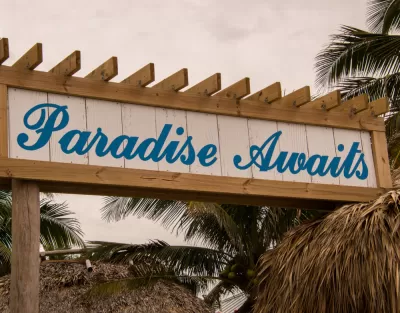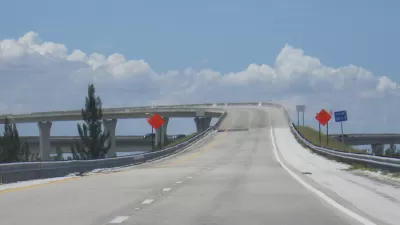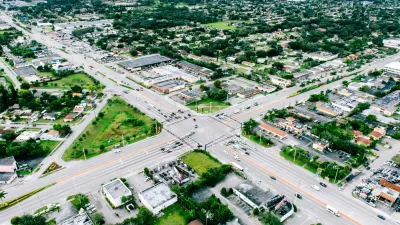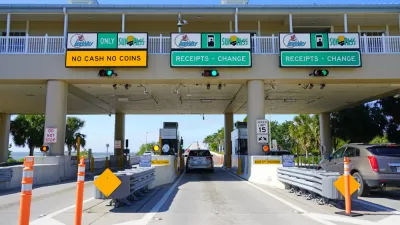The state of Florida is moving forward with the Multi-use Corridors of Regional Economic Significance (M-Cores) plan to build several new toll expressways in rural parts of the state.

Daniel Herriges does not mince words when assessing a plan advancing through the Florida Legislature "that would construct three new toll roads totaling more than 300 miles, and would divert over $1.3 billion from the state's general fund to pay for them."
"These roads would mostly parallel existing Interstate 75 through parts of the state that are rural and very sparsely populated. The proposed routes pass through what are now cattle pastures, citrus groves, and pine forests. The largest city on the longest of the three routes—Perry—has fewer than 10,000 inhabitants."
So how is the state justifying the need for such an immense expenditure on new roads? Herriges doesn't think it can. "There is absolutely no present, looming problem that these toll roads would solve. None."
While dispensing with potential pro-road project arguments like existing congestion and need for Hurricane evacuation capacity, Herriges gets to the fundamental argument of the article: "When we talk about the need to 'prepare' for growth with a brand new road deep into a rural area, we're glossing over a huge chicken/egg problem." The state of Florida doesn't have to grow in this mostly rural setting, according to Herriges, but there are some already wealthy interests who stand to benefit if it does.
After winning nearly unanimous approval from the Florida State Senate, the plan is now moving to the House. Herriges also recommends reading an opinion piece by Thomas Hawkins on the subject of the Multi-use Corridors of Regional Economic Significance (M-Cores) plan, written for the Gainesville Sun.
FULL STORY: Want to Be Prepared For Future Growth? Do the Opposite of This.

Planetizen Federal Action Tracker
A weekly monitor of how Trump’s orders and actions are impacting planners and planning in America.

Maui's Vacation Rental Debate Turns Ugly
Verbal attacks, misinformation campaigns and fistfights plague a high-stakes debate to convert thousands of vacation rentals into long-term housing.

Restaurant Patios Were a Pandemic Win — Why Were They so Hard to Keep?
Social distancing requirements and changes in travel patterns prompted cities to pilot new uses for street and sidewalk space. Then it got complicated.

In California Battle of Housing vs. Environment, Housing Just Won
A new state law significantly limits the power of CEQA, an environmental review law that served as a powerful tool for blocking new development.

Boulder Eliminates Parking Minimums Citywide
Officials estimate the cost of building a single underground parking space at up to $100,000.

Orange County, Florida Adopts Largest US “Sprawl Repair” Code
The ‘Orange Code’ seeks to rectify decades of sprawl-inducing, car-oriented development.
Urban Design for Planners 1: Software Tools
This six-course series explores essential urban design concepts using open source software and equips planners with the tools they need to participate fully in the urban design process.
Planning for Universal Design
Learn the tools for implementing Universal Design in planning regulations.
Heyer Gruel & Associates PA
JM Goldson LLC
Custer County Colorado
City of Camden Redevelopment Agency
City of Astoria
Transportation Research & Education Center (TREC) at Portland State University
Jefferson Parish Government
Camden Redevelopment Agency
City of Claremont





























